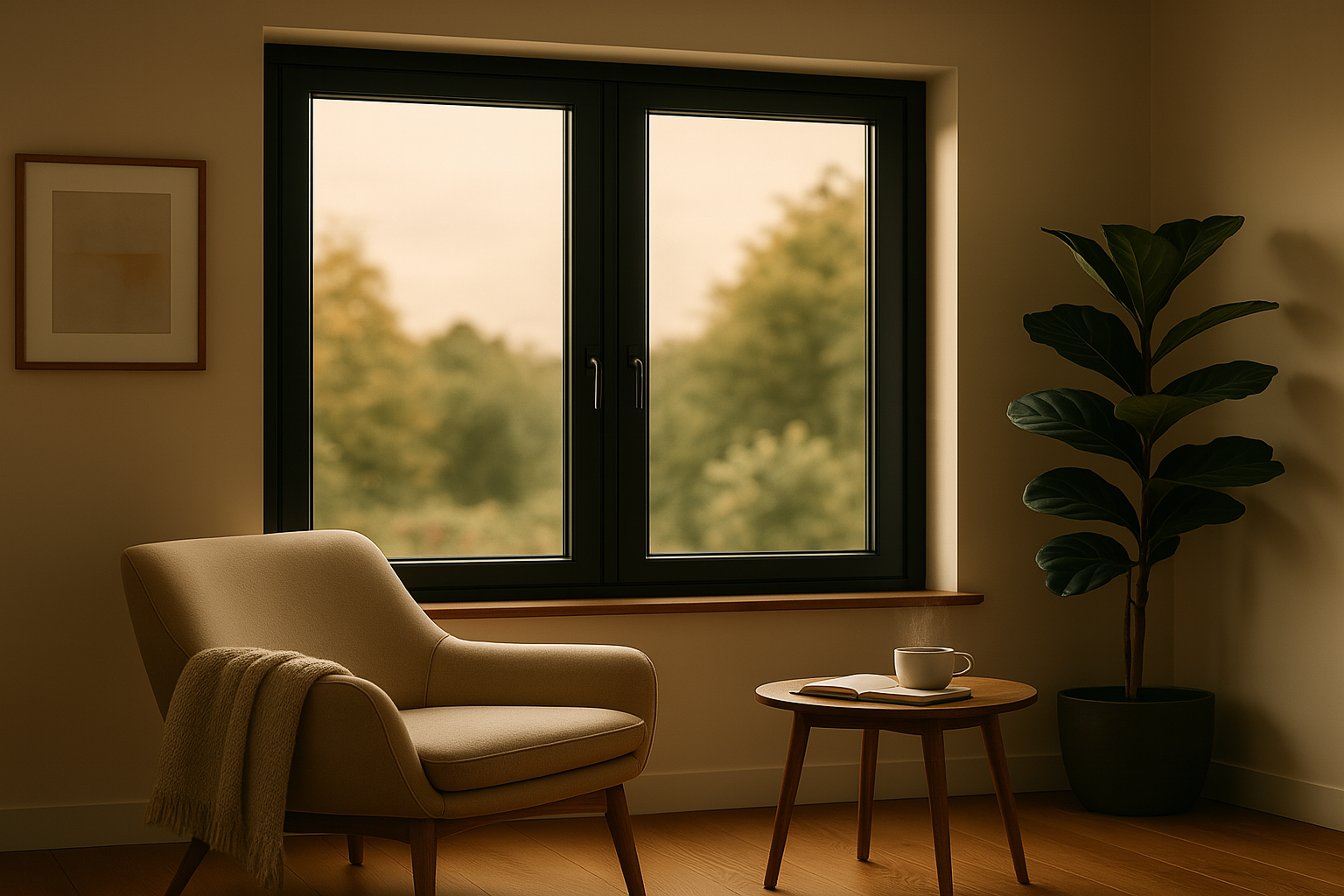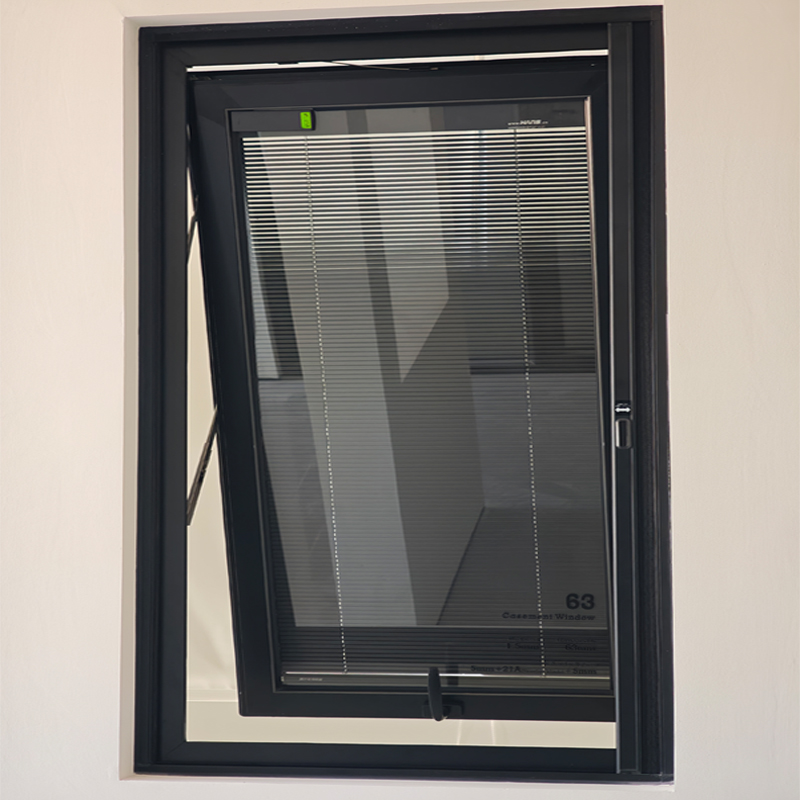
Did you know that incorrect window measurements account for nearly 40% of replacement delays and added costs? Double casement windows require precise measurements to ensure proper fit and operation. Unlike single windows, these dual-panel systems need careful attention to each component.
When planning a casement window replacement, accuracy makes the difference between a perfect installation and costly mistakes. Many homeowners struggle with measuring their windows correctly. This leads to ordering wrong sizes or discovering fit issues during installation. The unique design of double casement windows adds extra complexity to the measurement process.
In this guide, you'll learn the exact steps for measuring casement windows for replacement. We'll cover essential tools, measurement techniques, and common mistakes to avoid. You'll discover how to check if windows are square and record measurements properly. Plus, we'll share professional tips that ensure your new windows fit perfectly the first time.

Pre-Measurement Preparation for Double Casement Windows
Essential Tools for Measuring Casement Windows for Replacement
Before starting, gather the right tools. You'll need these items for accurate double casement windows measurements:
Required Tools:
● Metal tape measure (25+ feet recommended)
● 4-foot level
● Notebook or measurement worksheet
● Pencil (not pen)
● Calculator
● A reliable helper
Why a helper? Double casement windows are wider than single units. It's difficult to hold the tape measure steady across both panels alone.
Understanding your window's parts helps too. Let's identify them:
Component | Location | Purpose |
Frame | Outer border | Holds entire window |
Jambs | Vertical sides | Support structure |
Sill | Bottom horizontal | Water drainage |
Center Post | Middle divider | Separates panels |
Safety Considerations
Second-story windows need extra caution. Never lean out too far. Use a sturdy ladder for exterior measurements.
Ladder Safety Tips:
● Place it on level ground
● Extend 3 feet above window
● Have someone hold the base
● Keep both hands free for measuring
For casement window replacement prep, safety comes first. Falls happen when people rush or use wrong equipment.
Step-by-Step Guide: Measuring Double Casement Windows for Replacement
Checking if Your Double Casement Windows Are Square
Start by checking if your windows sit square. This step is crucial for double casement windows. They won't operate smoothly if the frame isn't square.
Here's how to check:
1. Place your tape measure at the upper left corner
2. Stretch it diagonally to the lower right corner
3. Write down this measurement
4. Repeat from upper right to lower left
5. Compare both numbers
Square Window Test Results:
Measurement Difference | Window Status | Action Needed |
Less than 1/8 inch | Square | Proceed with standard replacement |
1/8 to 1/4 inch | Slightly off | May need minor adjustments |
Over 1/4 inch | Out of square | Consult professional installer |
Measuring Width of Double Casement Windows
Width measurements need extra attention. You're dealing with two panels plus a center post.
First, identify your opening type:
Opening Type | Where to Measure | What to Ignore |
Standard Jambs | Jamb to jamb | Decorative trim |
Drywall Finish | Drywall to drywall | Any molding |
With Casing | Edge of jamb/drywall | All casing |
Three-Point Width Measurement:
● Top: Measure horizontally across the top
● Middle: Open windows halfway, measure at center
● Bottom: Measure across the bottom edge
If your opening has drywall instead of jambs, measure from drywall to drywall. Windows with decorative casing? Ignore it completely. Measure from the actual jamb or drywall edge.
Now measure each panel separately:
1. Left panel width (jamb to center post)
2. Right panel width (center post to jamb)
3. Center post/mullion width
Pro Tip: The center post affects your replacement options. Fixed posts mean you'll need windows designed for that configuration. Removable posts offer more flexibility.
Measuring Height for Casement Window Replacement
Height measurements follow a similar three-point system. But you measure vertically instead.
Special considerations for different openings:
● Drywall openings: Measure from sill to drywall at top
● Standard jambs: Measure head to sill
● Windows with casing: Ignore casing, use actual opening
Vertical Measurement Points:
● Left side (jamb area)
● Center (at the mullion)
● Right side (opposite jamb)
Measuring Depth Requirements
Depth rarely matters for standard replacements. But it's critical in certain situations.
Important: Ignore parting strips or pulleys when measuring. They'll be removed during casement window replacement. Measure the actual frame depth only.
You need at least 3¼ inches of frame depth. Here's how to measure:
1. Open your window
2. Place tape measure on the sill
3. Measure from inside edge to outside edge
4. Ignore any parting strips or pulleys
5. Check at multiple points
This integration provides clearer guidance for different window opening types while maintaining the article's flow and structure.
Special Considerations for Double Casement Window Replacement
Operating Mechanisms and Hardware
Double casement windows come with different operating systems. Understanding yours helps you order the right replacement.
Crank System Options:
Type | Description | Best For |
Single Crank | One handle controls both panels | Smaller windows under 48" wide |
Dual Crank | Separate handles for each panel | Wider windows, independent control |
Truth Hardware | Premium multi-point locking | High-wind areas, security focus |
Check which side your handles are on. Left-hand or right-hand operation affects your replacement choices.
Hinge Placement Matters:
● Standard hinges: Support up to 50 pounds
● Heavy-duty hinges: Handle 100+ pounds
● Friction hinges: Allow windows to stay open
Measure clearance around hinges. You need 2-3 inches minimum. Otherwise, windows won't open fully.
Exterior Obstacles and Installation Factors
Walk outside and check for obstacles. Many homeowners forget this crucial step.
Common Obstructions:
● Shutters or decorative trim
● Awnings or overhangs
● Tree branches
● Patio furniture
● Outdoor light fixtures
Remember wind patterns too. Windows typically open toward prevailing winds. This captures fresh air better. Mark which direction yours should open.
Screen Measurements for Casement Window Replacement:
Screens mount differently on double casements:
1. Full screens: Cover both panels
a. Width = total opening minus 1/8"
b. Height = sill to head plus 1/8"
2. Individual screens: One per panel
a. Measure each opening separately
b. Account for center post width
Check if screens attach inside or outside. It affects your measurements. Interior screens need different dimensions than exterior ones.
Recording Measurements and Professional Tips
Proper Documentation Methods
Recording measurements correctly saves headaches later. Use the industry standard format for double casement windows.
Standard Notation:
● Always write width × height
● Example: 48" × 36" (not 36" × 48")
● Include panel sizes: "Left 24" × 36", Right 24" × 36""
Create a simple worksheet for each window:
Window Location | Total Size | Left Panel | Right Panel | Notes |
Master Bedroom | 48" × 36" | 24" × 36" | 24" × 36" | Crank on left |
Kitchen | 60" × 48" | 30" × 48" | 30" × 48" | Dual cranks |
Rounding Rules:
● Always round DOWN to nearest 1/8"
● 35 7/8" stays 35 7/8"
● 35 15/16" becomes 35 7/8"
● Never round up—windows won't fit
When to Call Professionals
Some situations need expert help. Don't risk expensive mistakes.
Call pros for:
● Bay or bow window configurations
● Measurements varying over 1/4"
● Structural damage signs
● Historic home requirements
● Custom or odd-shaped openings
Professional measurement services typically include:
● Precise laser measurements
● Structural assessment
● Installation planning
● Warranty protection
● Code compliance check
Most companies offer free measurement visits. They'll verify your numbers before ordering. It's worth the peace of mind for casement window replacement projects.
DERCHI Premium Window Solutions for Your Replacement Needs
Why Choose DERCHI for Double Casement Window Replacement
When measuring casement windows for replacement, consider DERCHI's premium options. They've manufactured windows for over 25 years.
DERCHI Quality Standards:
● Wall thickness: 1.8-2.0mm (exceeds industry standards)
● Annual production: 300,000+ square meters
● Factory size: 70,000 square meters
● Team: 600+ skilled professionals
Their double casement windows withstand extreme weather. Typhoon-resistant designs protect coastal homes. Advanced safety features give families peace of mind.
DERCHI Double Casement Window Features
DERCHI windows include premium components:
Feature | Benefit |
Triple-seal weatherproofing | Superior water and air resistance |
WEIHAGEN antimicrobial handles | Bacteria growth prevention |
Patented corner connections | 50% stronger than standard joints |
Water-expanding EPDM strips | Automatic seal enhancement in rain |
The water-expanding technology is impressive. Sealing strips expand 3x when wet. They create an impenetrable barrier against storms.
Additional Premium Features:
● Four-point six-side locking system
● Anti-drop safety cables (150kg capacity)
● Hidden drainage design
● Continuous corner sealing (no gaps)
Professional Installation Network
DERCHI's certified installers handle everything. They verify your measurements before manufacturing begins.
Installation Benefits:
● Free measurement service
● Code compliance verification
● 10-year warranty on materials
● 20-year glass warranty
● Custom sizes available
Their installers use laser measurement tools. It ensures perfect fit for your casement window replacement. Custom manufacturing means no compromise on size or features.
Frequently Asked Questions About Measuring Casement Windows for Replacement
Q: How do I measure double casement windows that won't open?
Measure from the exterior if possible. Use the visible frame edges. If you can't access outside, measure the glass plus add 2 inches for frame allowance.
Q: My windows are non-standard sizes. What now?
Most manufacturers offer custom sizes. DERCHI specializes in odd dimensions. Measure carefully and order custom-built double casement windows.
Q: What's the difference between rough opening and window size?
The rough opening is your wall's hole. Window size is smaller—typically by 1/2 inch. This gap allows for installation adjustments.
Q: How long from measurement to installation?
Standard timeline:
● Measurement: Day 1
● Order processing: 2-3 days
● Manufacturing: 2-4 weeks
● Delivery/Installation: 1-2 days
Custom casement window replacement may take 4-6 weeks. Plan accordingly for weather protection.
Final Measurement Checklist and Professional Solutions
Accurate measurements ensure successful casement window replacement. Let's recap the essential steps.
Key Measurement Checklist:
● Check windows are square (diagonal measurements)
● Measure width at three points
● Measure height at three locations
● Record individual panel sizes
● Note center post dimensions
● Use smallest measurements
● Round down to nearest 1/8 inch
Remember, double casement windows require extra attention. Each panel needs separate measurements. Don't forget about hardware placement and exterior obstacles.
Precision matters more than speed. One wrong measurement can delay your entire project. It may also cost hundreds in reordering fees.
For best results, consider professional help. DERCHI offers free measurement services for measuring casement windows for replacement. Their certified installers ensure perfect fit every time. With 25+ years of experience, they handle complex installations confidently.
Ready to upgrade your windows? Contact DERCHI for a consultation. They'll guide you through the entire process. From measurement to installation, you're covered.








